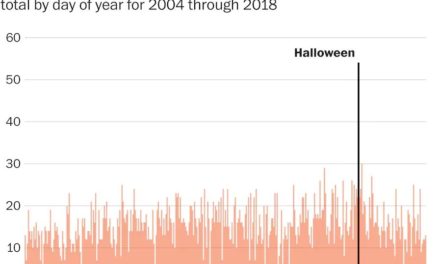It’s a new year and for me – it means the end of a bold experiment. For the past year-and-a-half I haven’t watched the nightly local news. This may not sound “bold” for many of you; after all, viewers have been abandoning local television news in droves – not just in Memphis, but across the country.
There are two reasons it’s a bold move for me: (1) I teach broadcast journalism at the college level and (2) I was once a reporter at a local Memphis television station. If anyone should watch local news, it should be me, right? I stopped watching for a reason, though. I feared local news was making me a little edgy about life in the Bluff City. It’s difficult to sleep soundly at night when the last image flickering across the screen is of another shooting or stabbing. I was beginning to wonder if this really was the place I should raise my child. So could removing one variable from my life – watching the local news before I go to bed – change anything?
No, I didn’t bury my head in the sand. I continued to watch national news broadcasts, listen to morning news on the radio, read a national Sunday paper and check news online. Locally, I stayed informed with the daily newspaper and other Memphis publications. When local news broke, I checked station websites and occasionally watched morning or early evening local news. But I didn’t watch the flashing lights and yellow crime scene tape before my head hit the pillow.
Ironically, watching less news turned out to be a reality check. I worried much less about crime, and became more concerned about our government. I got out of bed less to check the house for a burglar, and more frequently pondered our educational system. In other words, I spent less time worrying about the remote possibility that I would be a crime victim, and more time thinking about the issues that regularly impact my life.
The issues of government and education still don’t paint a pretty picture of Memphis, but at least there is both good and bad news on those fronts. Whether it’s directly or indirectly, you are impacted day-to-day by local government and schools.
Unless you live in the most crime-ridden section of town or are a police officer, it’s certain that crime does not visit you on a daily basis; meaning you are not the victim of, or witness to a crime, each day. Dr. Richard Janikowski, chair of the Criminology and Justice Center at the University of Memphis and architect of the data-driven crime fighting tool “Blue Crush,” estimates that 80% of the homicides, aggravated and simple assaults that occur in Memphis are between people who know each other. And that’s just based on initial police reports. Janikowski claims that as the investigation continues, detectives often find that some seemingly “random” crimes involve acquaintances or relatives.
But that’s not the feeling we get when we watch local news – is it? A 2008 study by a graduate student at the University of Memphis found that local stations spend an average of fifty-percent of their news time reporting crime. Does crime comprise half of any average Memphian’s day? Of all the events that happen in the Mid-South on a daily basis, are half of those criminal? When you watch the local nightly news, are you really seeing an accurate record of the region?
So now we return to the end of my “bold experiment.” This month, I will resume my old habit of watching the nightly local news, because if I am to write about media coverage in Memphis, I must watch it! I am looking forward to seeing the work of my friends and former colleagues. Make no mistake, there are excellent local television journalists doing their best to tell impactful, newsworthy stories. I only hope that by watching the news again, my view of Memphis won’t once again be colored by fear and cynicism.




Well said!
It’s important to reiterate that not watching local TV news isn’t the same thing as avoiding news. It’s just avoiding what passes for news these days on local TV: street crime, street crime, street crime. The skewed view afflicts virtually every market in America, and at what great cost.
I hope broadcast journalists get the message soon, because year after year their audience is quietly disappearing.
Lurene:
I remember research a few decades ago that found that a city’s fear of crime often more related to media coverage than the rate itself. Some cities had high levels of fear but low levels of crime, but their emotional reaction was based on what they were seeing and reading in media.
Loved your experiment, which more of us are participating in than some people might think. No one here watching TV news anymore because we’re tired of the blood and guts coverage that kicks it off every night, and if there’s not something horrendous here, they’ll find something 80 miles west in Arkansas to put up there.
As a reporter at one of the local stations, the best recommendation I can make is that you help us, help you. Many of us HATE that crime consumes our coverage… but producers, news directors, and general managers seem to think it’s what people want.
My best recommendation is to take the time to call or email news directors or GMs (their email addresses are on the station’s website) and let them hear your side of the story. Send reporters unique, interesting, impactful story ideas that are affecting your neighborhood, school, community, and city. Stories of real people that are making a difference, a volunteer program that is changing a child’s life, or even questionable pocket-book issues that affect us all. There’s no doubt there is plenty of ‘good news’ out there, but we need YOU to help us find it and pitch it.
Trust me, we are ready for a change. I’m a firm believer that what a person sees/hears on the nightly news shapes their perception of the surroundings. Instead of turning off the TV, help us spark a change.
Great article…..excellent points which truly touch home!
So sick and tired of all the negative reporting! I don’t even watch it any more.